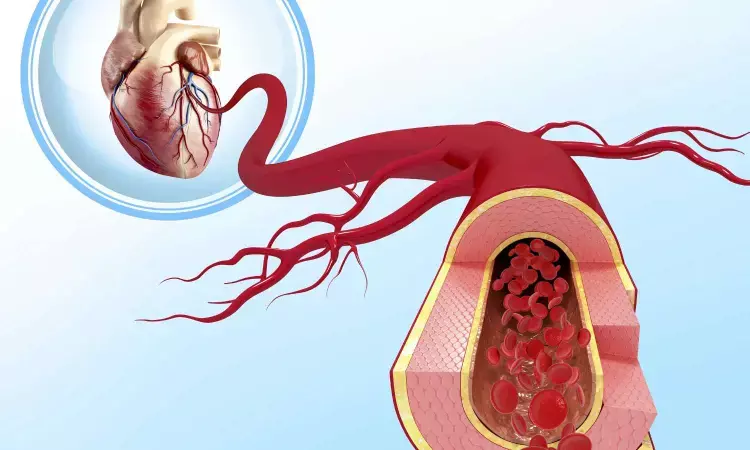- Home
- Medical news & Guidelines
- Anesthesiology
- Cardiology and CTVS
- Critical Care
- Dentistry
- Dermatology
- Diabetes and Endocrinology
- ENT
- Gastroenterology
- Medicine
- Nephrology
- Neurology
- Obstretics-Gynaecology
- Oncology
- Ophthalmology
- Orthopaedics
- Pediatrics-Neonatology
- Psychiatry
- Pulmonology
- Radiology
- Surgery
- Urology
- Laboratory Medicine
- Diet
- Nursing
- Paramedical
- Physiotherapy
- Health news
- Fact Check
- Bone Health Fact Check
- Brain Health Fact Check
- Cancer Related Fact Check
- Child Care Fact Check
- Dental and oral health fact check
- Diabetes and metabolic health fact check
- Diet and Nutrition Fact Check
- Eye and ENT Care Fact Check
- Fitness fact check
- Gut health fact check
- Heart health fact check
- Kidney health fact check
- Medical education fact check
- Men's health fact check
- Respiratory fact check
- Skin and hair care fact check
- Vaccine and Immunization fact check
- Women's health fact check
- AYUSH
- State News
- Andaman and Nicobar Islands
- Andhra Pradesh
- Arunachal Pradesh
- Assam
- Bihar
- Chandigarh
- Chattisgarh
- Dadra and Nagar Haveli
- Daman and Diu
- Delhi
- Goa
- Gujarat
- Haryana
- Himachal Pradesh
- Jammu & Kashmir
- Jharkhand
- Karnataka
- Kerala
- Ladakh
- Lakshadweep
- Madhya Pradesh
- Maharashtra
- Manipur
- Meghalaya
- Mizoram
- Nagaland
- Odisha
- Puducherry
- Punjab
- Rajasthan
- Sikkim
- Tamil Nadu
- Telangana
- Tripura
- Uttar Pradesh
- Uttrakhand
- West Bengal
- Medical Education
- Industry
CABG associated with lower six-year mortality among women with multivessel disease

A comprehensive retrospective study comparing the outcomes of two common treatments, percutaneous coronary intervention (PCI) and coronary artery bypass graft surgery (CABG), for women with multivessel coronary artery disease reveals crucial differences in long-term results. The researchers found that CABG is associated with lower six-year mortality among women with multivessel disease.
This study was published in The Journal Of Thoracic and Cardiovascular Surgery by Edward Hannan and colleagues.
The research, conducted using the New York State cardiac registry data from 2012 to 2018, assessed outcomes in women with multivessel coronary artery disease who underwent either PCI with everolimus-eluting stents or CABG. Here are the primary findings:
Mortality Risk: PCI was associated with a higher six-year risk of mortality compared to CABG (25.75% vs. 23.57%).
Composite Major Adverse Cardiac Events: PCI showed a higher rate of the composite outcome of death, myocardial infarction, and stroke (36.58% vs. 32.89%).
Myocardial Infarction: Patients undergoing PCI had a significantly higher rate of myocardial infarction compared to those undergoing CABG (14.94% vs. 9.12%).
Stroke: There was no significant difference in stroke rates between the two interventions.
Repeat Revascularization: PCI was associated with higher rates of repeat revascularization (21.53% vs. 11.57%).
The study's analysis suggests that for women with multivessel coronary artery disease, CABG appears to offer more favorable long-term outcomes compared to PCI with everolimus-eluting stents. The findings highlight the importance of considering the optimal treatment strategy, especially for female patients with this specific condition.
No Mortality Difference in Certain Groups: Notably, when PCI patients received complete revascularization or had non-complex lesions, and among women without diabetes, there was no significant mortality difference between the interventions.
Lower Repeat Revascularization with CABG: The study also underscores the advantage of CABG over PCI in reducing the need for repeat revascularization procedures in this patient population.
The study findings highlight the importance of weighing the risks and benefits of different treatment strategies for women with multivessel coronary artery disease. While PCI with everolimus-eluting stents remains a viable option, the study suggests that CABG might offer more favorable long-term outcomes, emphasizing the need for individualized treatment approaches in clinical practice.
Reference:
Hannan, E. L., Wu, Y., Harik, L., Tamis-Holland, J., Jacobs, A. K., Chikwe, J., Cozzens, K. S., & Gaudino, M. Coronary artery bypass surgery vs. Percutaneous interventions for women with multivessel coronary artery disease. The Journal of Thoracic and Cardiovascular Surgery,2023. https://doi.org/10.1016/j.jtcvs.2023.12.009
Dr Riya Dave has completed dentistry from Gujarat University in 2022. She is a dentist and accomplished medical and scientific writer known for her commitment to bridging the gap between clinical expertise and accessible healthcare information. She has been actively involved in writing blogs related to health and wellness.
Dr Kamal Kant Kohli-MBBS, DTCD- a chest specialist with more than 30 years of practice and a flair for writing clinical articles, Dr Kamal Kant Kohli joined Medical Dialogues as a Chief Editor of Medical News. Besides writing articles, as an editor, he proofreads and verifies all the medical content published on Medical Dialogues including those coming from journals, studies,medical conferences,guidelines etc. Email: drkohli@medicaldialogues.in. Contact no. 011-43720751


